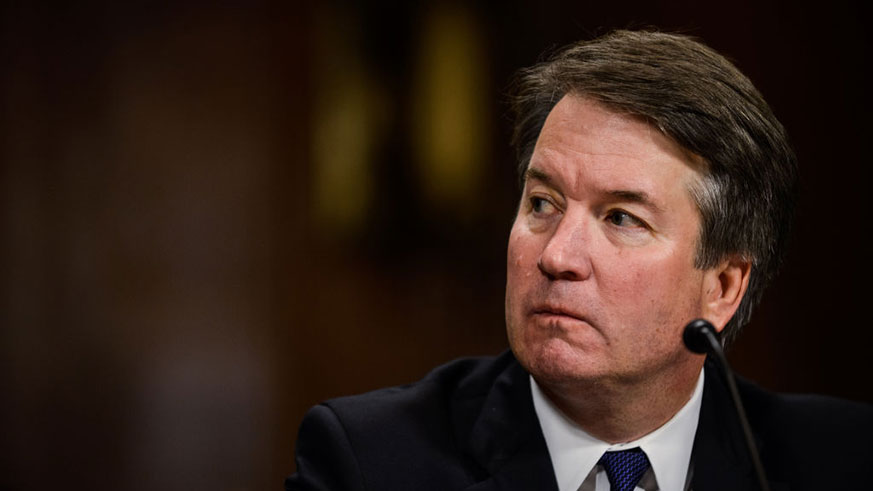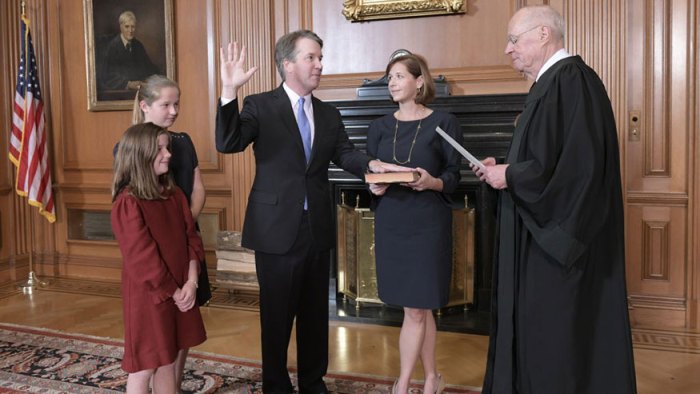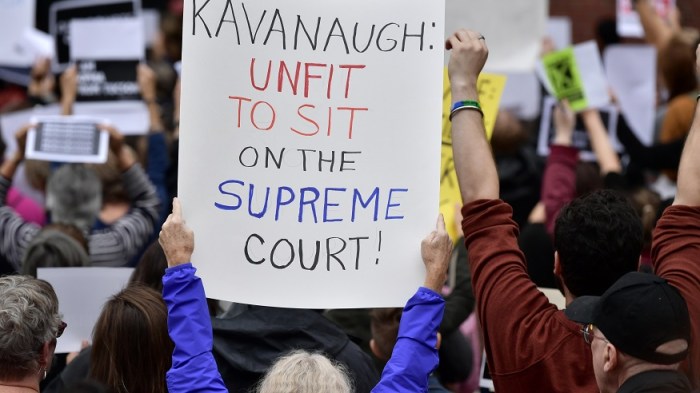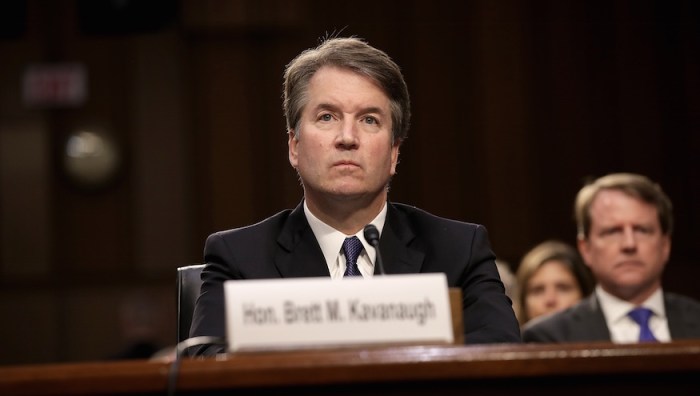Although Republicans and President Trump may have ignited fears of men being falsely accused of sexual assault, statistics show that it almost never happens.
During the Supreme Court confirmation process for Brett Kavanaugh, Trump went beyond mocking Christine Blasey Ford’s allegations as false — he suggested they could become a phenomenon. “It is a very scary time for young men in America, where you can be guilty of something you may not be guilty of,” he said on Oct. 3. “This is a very, very — this is a very difficult time. What’s happening here has much more to do than even the appointment of a Supreme Court justice.”
In the New York Times, conservative op-ed columnist Bret Stephens wrote, “Falsely accusing a person of sexual assault is nearly as despicable as sexual assault itself. It inflicts psychic, familial, reputational and professional harms that can last a lifetime. This is nothing to sneer at.”
But it is something to question.
In his piece, Stephens cited the oft-repeated statistic that five percent of rape allegations are false. But that is extremely misleading, as sociologist Joanne Belknap points out.
“Typically, this figure comes from studies done on college students, an estimated 95 percent of whom do not report their assaults to police,” writes Katie Heaney in The Cut. “Overall, an estimated 8 to 10 percent of women are thought to report their rapes to the police, which means that — at the very highest — we can infer that 90 percent of rapes go unreported, says Belknap. Obviously, only those rapes that are reported in the first place can be considered falsely reported, so that 5 percent figure only applies to 10 percent (at most) of rapes that occur. This puts the actual false allegation figure closer to 0.005 percent (i.e., five percent of ten percent).”
That figure — 0.005 — is, quite literally, exponentially closer to zero than to five percent.
And that doesn’t take into account one reason why allegations are labeled false: That the accuser decides to recant her story, which doesn’t mean it was fabricated. A victim might decide she doesn’t want to go through the triggering process of prosecuting her attacker. “If you don’t want to go through a police investigation, for any reason — and there are many many reasons why you might not want to, it’s really traumatizing — then the easiest and quickest way to get out of it is to recant and say you were lying,” says novelist Sandra Newman, who has extensively researched false rape allegations.
USA Today columnist Kirsten Powers put the statistics in perspective after Sen. John Cornyn (R-TX) compared Kavanaugh’s plight to that of the black man falsely accused of raping a white woman in “To Kill a Mockingbird.”
“False rape accusations are so common that the only example the GOP could come up with was a fictional character from a 1960 novel,” she tweeted.
False rape accusations are so common that the only example the GOP could come up with was a fictional character from a 1960 novel. https://t.co/t0fcfLIyy7
— Kirsten Powers (@KirstenPowers) October 4, 2018

























